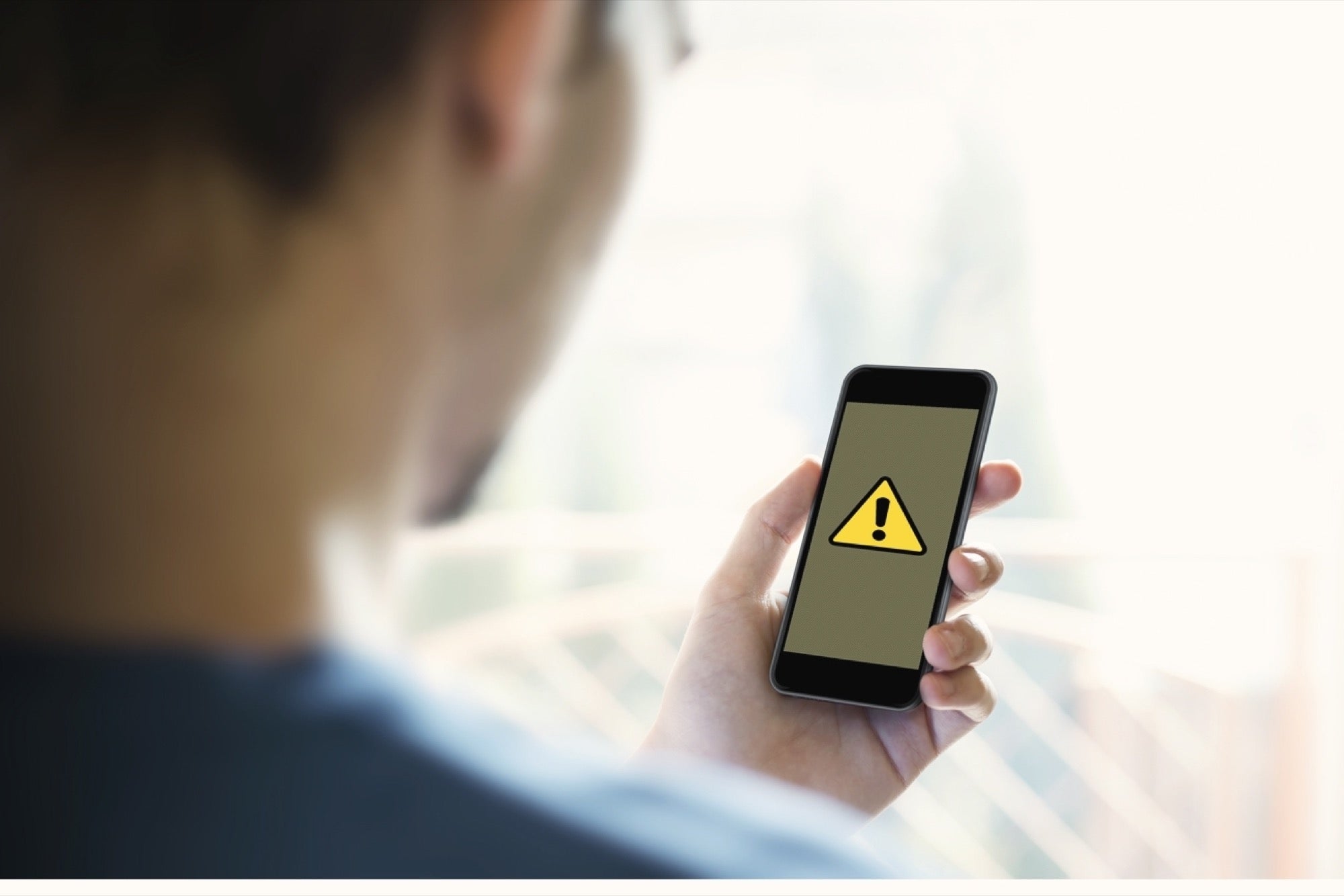Proceed With Caution: Should Smartphones Come With a Warning? A recent study from the University of Derby recommends that consumers be given fair warning about the potential addictive properties of mobile devices.
By Nina Zipkin •


Be honest, how many times a day do you check your phone? Ten? Fifty? Or if you are like the average person, at least 110 times a day. Smartphones are a constant presence in our lives, with users spending more time on mobile devices than ever before. But should this sort of behavior actually come with a warning?
That's the recommendation of Claire Pearson and Zaheer Hussain, two researchers from United Kingdom's University of Derby who conducted a study recently titled "Smartphone Use, Addiction, Narcissism, and Personality: A Mixed Methods Investigation."
Pearson and Hussain polled 256 people ranging from 17 to 68, via an online questionnaire, and on average, the participants had owned their phones for 4.07 years and used it for 3.63 hours a day.
Related: iPhone Separation Anxiety Is an Actual Problem, Study Finds
Roughly 61 percent reported feeling a "severe distraction which negatively impacts on interpersonal relationships, work, hobbies and studies," while 13.3 percent "showed a dependence on their smartphone and could be classified as addicted to smartphone use."
Narcissism tends to go hand in hand with diagnoses of addictive behavior, and the psychologists found that there was a link between a person's levels of narcissism (and neuroticism) and smartphone addiction. In this particular study, 92 of the 256 participants reported using their smartphones even if they were in areas that banned them, pointing to "the theme "self-serving personalities.'"
Related: 7 Musts to Maximize Your Company's Mobile Strategy
Seventy-one percent of the participants were women and 29 percent were men. The researchers noted that the small (and skewed female) sample size did impact how in-depth the study could get, and that "future research in this area should attempt to recruit an equal number of male and female participants."
Ultimately Pearson and Hussain concluded that smartphone makers would do well to think of the consumer's health and well-being by giving them all the information -- including a warning about the possible addictive properties of mobile devices.
Related: 10 Promising Startups Poised to Change the Way You Live, Work and Play











